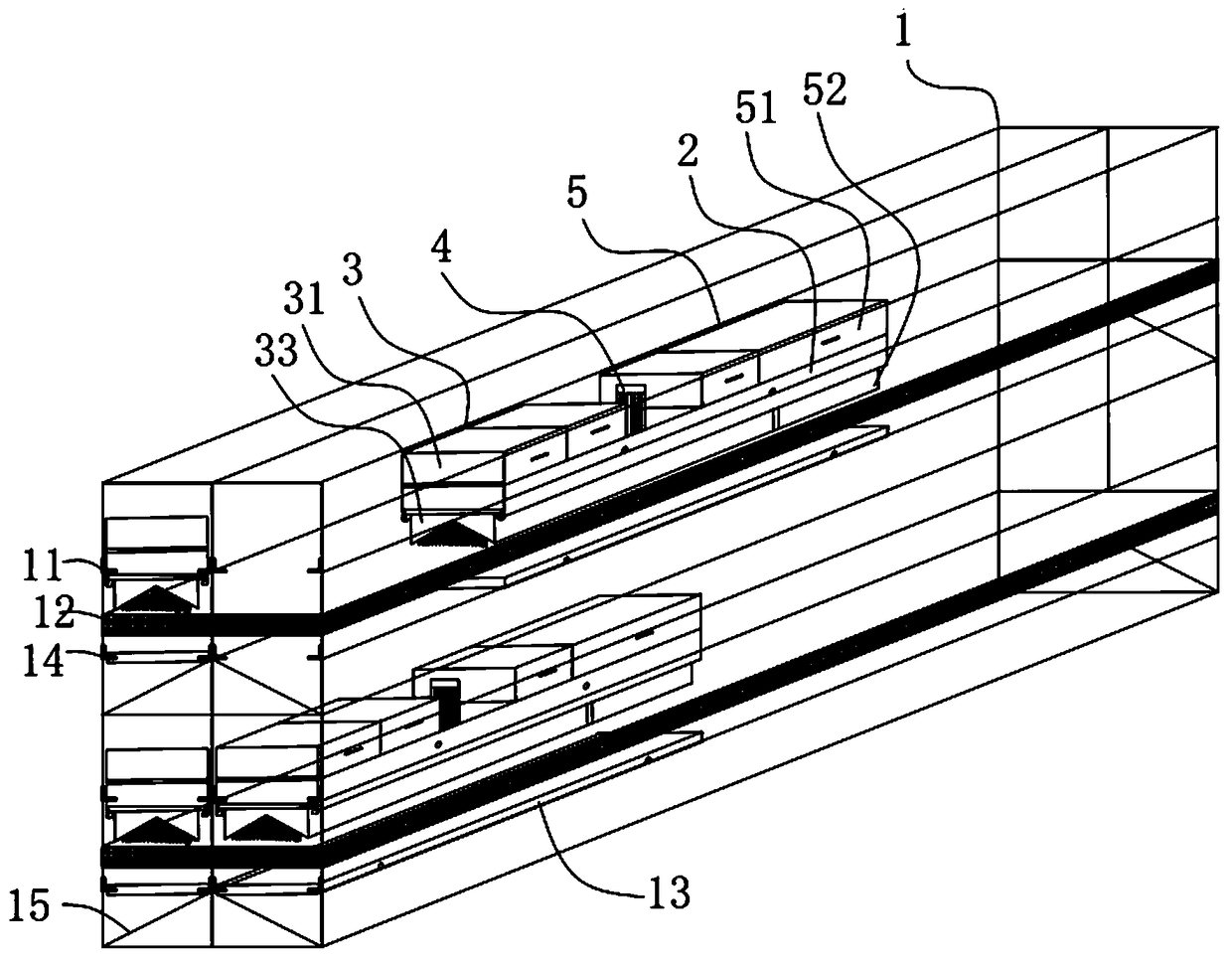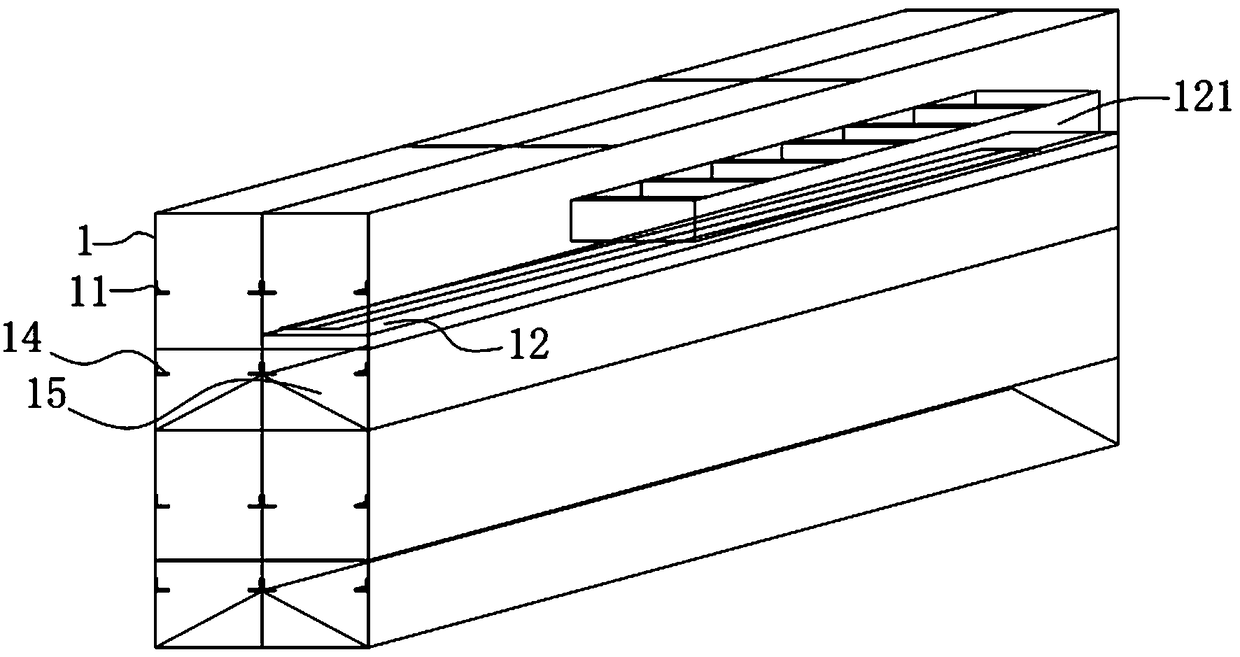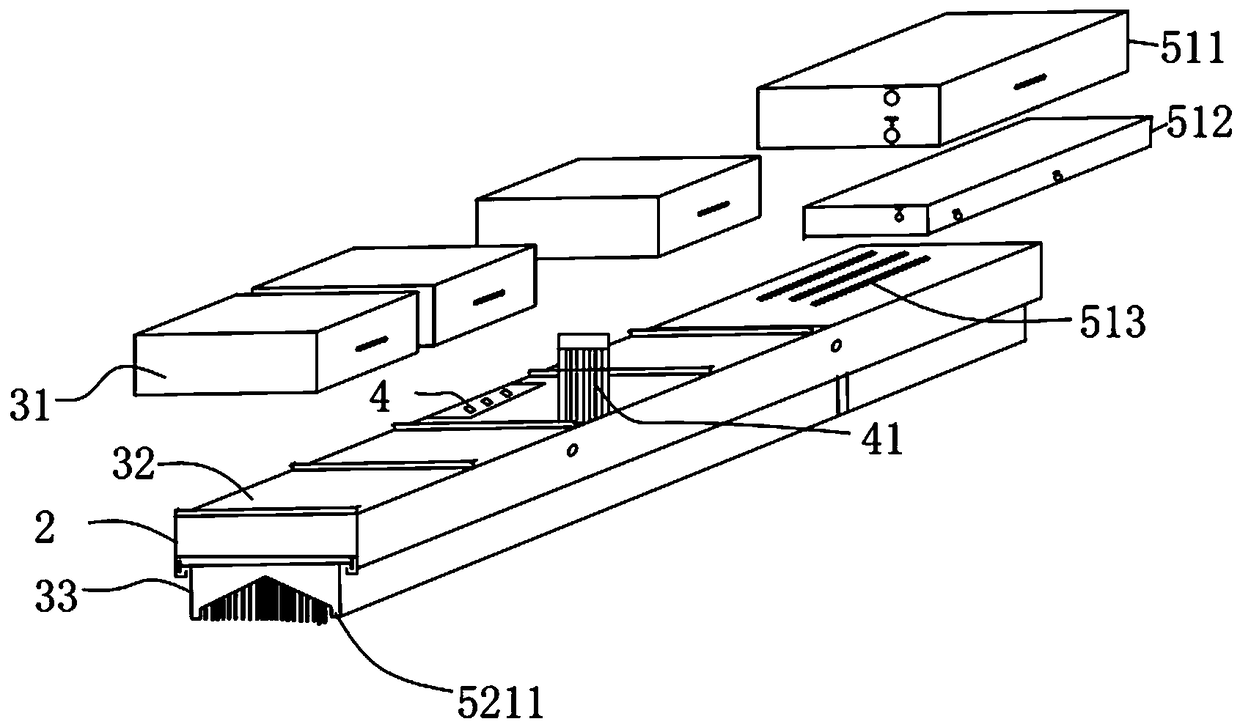A new type of automatic feeding equipment for young pigeons
A young pigeon, automatic technology, applied in the poultry industry, applications, poultry cages or sheds, etc., can solve the problems of technical difficulties in feeding, easy to twist young pigeons, injuries, etc., to improve the survival rate of young pigeons, water level maintenance. The effect of stable and lower production cost
- Summary
- Abstract
- Description
- Claims
- Application Information
AI Technical Summary
Problems solved by technology
Method used
Image
Examples
Embodiment Construction
[0038] The following will clearly and completely describe the technical solutions in the embodiments of the present invention with reference to the accompanying drawings in the embodiments of the present invention. Obviously, the described embodiments are only some, not all, embodiments of the present invention. Based on the embodiments of the present invention, all other embodiments obtained by persons of ordinary skill in the art without making creative efforts belong to the protection scope of the present invention.
[0039] A new type of automatic feeding equipment for young pigeons, comprising an outer frame cover 1, an inner frame 2 movably arranged in the outer frame cover 1; the inner frame 2 is sequentially provided with a detachable feeding device 3, a control System 4 and water supply device 5; Described feed device 3 can be arranged on the inner frame 2 that can swing back and forth, and it is provided with feed box 31, lower hopper 32 and feed tank 33 successively ...
PUM
 Login to View More
Login to View More Abstract
Description
Claims
Application Information
 Login to View More
Login to View More - R&D
- Intellectual Property
- Life Sciences
- Materials
- Tech Scout
- Unparalleled Data Quality
- Higher Quality Content
- 60% Fewer Hallucinations
Browse by: Latest US Patents, China's latest patents, Technical Efficacy Thesaurus, Application Domain, Technology Topic, Popular Technical Reports.
© 2025 PatSnap. All rights reserved.Legal|Privacy policy|Modern Slavery Act Transparency Statement|Sitemap|About US| Contact US: help@patsnap.com



